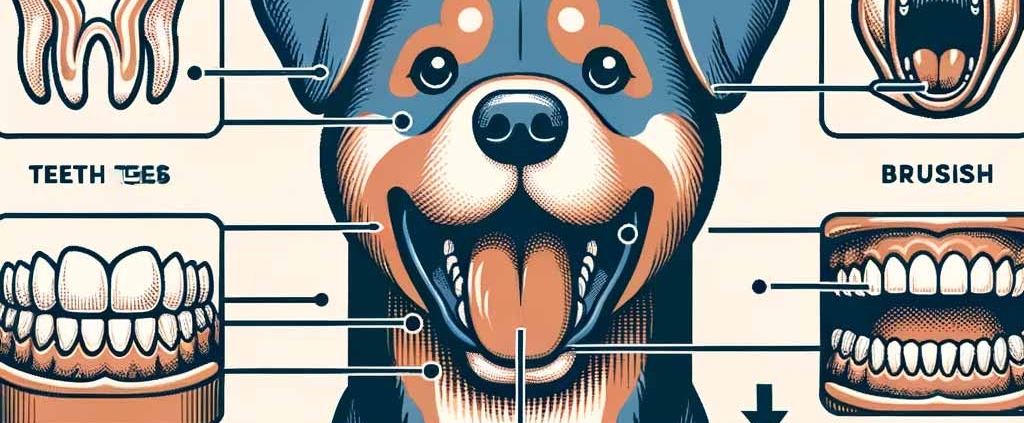Pearly Whites: Ensuring Optimal Dental Health for Your Canine Companion
Dental health is a critical component of overall wellness for dogs, just as it is for humans. Neglecting a dog’s oral hygiene can lead to a slew of problems, including bad breath, gum disease, tooth decay, and even systemic issues affecting the heart, liver, and kidneys. This article will explore the importance of dog tooth health, identifying signs of dental problems, and providing practical tips to maintain your furry friend’s pearly whites.
Understanding Canine Dental Health
Dogs have 42 teeth, and just like humans, they can suffer from plaque buildup, tartar, gum disease, and tooth decay. Dental problems in dogs often start with the formation of plaque, a sticky film of bacteria. If not removed, plaque can harden into tartar, leading to gingivitis (inflammation of the gums) and periodontal disease, which affects the structures supporting the teeth.
Signs of Dental Problems in Dogs
- Bad Breath: While dogs don’t have the freshest breath, excessively foul odor can be a sign of dental issues.
- Red or Swollen Gums: Inflamed gums can indicate gingivitis or periodontal disease.
- Difficulty Eating: A dog that is hesitant to eat or shows signs of pain while chewing may have dental problems.
- Loose or Missing Teeth: Adult dogs should have a full set of 42 teeth. Missing or loose teeth are signs of advanced dental disease.
- Excessive Drooling: Some dogs naturally drool more than others, but a sudden increase in drooling can be a sign of pain or discomfort.
- Pawing at the Mouth: A dog in discomfort may paw at its mouth or rub its face against the ground.
- Discolored Teeth: Yellow or brown staining on the teeth is a sign of tartar buildup.
Preventing Dental Problems
- Regular Vet Check-ups: Regular veterinary check-ups, including dental examinations, are crucial. Your vet can spot early signs of dental disease and provide professional cleaning if necessary.
- Brushing Teeth: Just like humans, dogs benefit from regular tooth brushing. Use a toothbrush designed for dogs and pet-safe toothpaste. Aim to brush your dog’s teeth daily, but even a few times a week can make a difference.
- Dental Chews and Treats: There are numerous dental chews and treats designed to help reduce plaque and tartar buildup. Ensure that they are appropriate for your dog’s size and chew strength.
- Provide Chew Toys: Chew toys can help keep your dog’s teeth clean and strengthen their gums.
- Water Additives: Some products can be added to your dog’s drinking water to help control plaque and reduce bad breath.
- Healthy Diet: A balanced diet can contribute to overall dental health. Some dog foods are formulated to help reduce plaque and tartar buildup.
Conclusion
Maintaining your dog’s dental health is a crucial aspect of their overall well-being. By being vigilant about oral hygiene, providing appropriate chew toys and treats, and ensuring regular veterinary check-ups, you can help keep your canine companion’s teeth healthy and sparkling for years to come. Remember, prevention is key, and starting dental care routines early can lead to a lifetime of good oral health.



Leave a Reply
Want to join the discussion?Feel free to contribute!